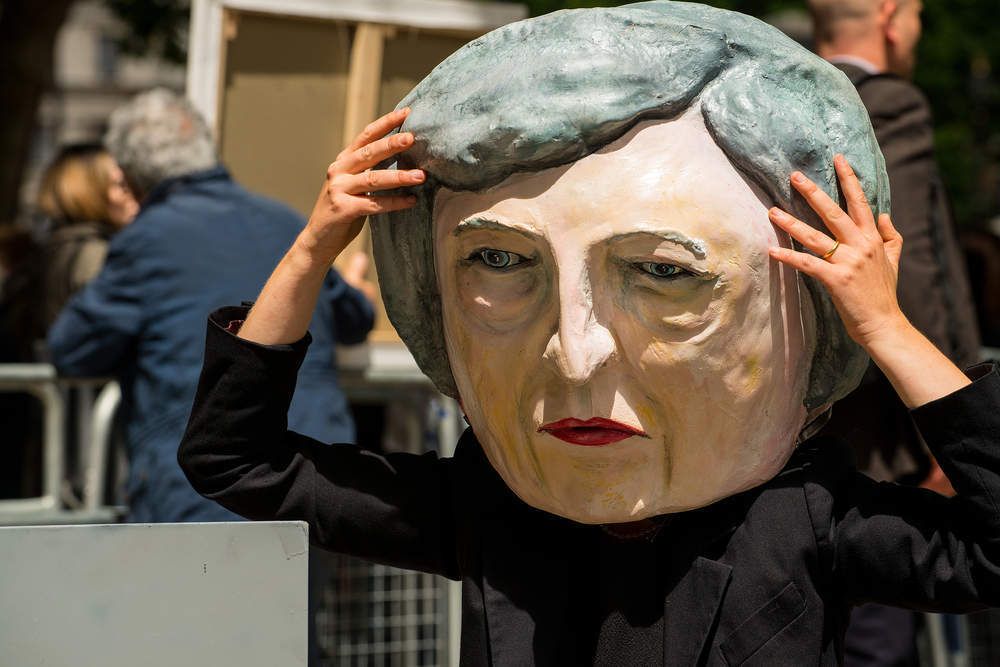
The final cost to the UK of leaving the European Union could nudge £40 billion, above the £35 billion to £39 billion so-called Brexit bill suggested by Prime Minister Theresa May’s government.
However, the total Brexit bill remains unclear due to uncertainty surrounding the future, according to a report by the UK spending watchdog, the National Audit Office (NAO).
While the NAO said the Brexit bill could run above the expected range, it’s unlikely to be much above — it found the range put forward by the government was ‘a reasonable estimate’.
The UK’s pension liabilities to the EU, the amount UK organisations will receive in EU funding after withdrawal, and exchange rate fluctuations all mean the final bill is still unknown.
The report said:
Relatively small changes to some assumptions about future events could push the cost outside of HM Treasury’s £35 billion to £39 billion range.
How well do you really know your competitors?
Access the most comprehensive Company Profiles on the market, powered by GlobalData. Save hours of research. Gain competitive edge.
 Company Profile – free sample
Company Profile – free sampleThank you!
Your download email will arrive shortly
Not ready to buy yet? Download a free sample
We are confident about the unique quality of our Company Profiles. However, we want you to make the most beneficial decision for your business, so we offer a free sample that you can download by submitting the below form
By GlobalData
The UK will leave the EU trading bloc in March 2019, however, it is seeking a transition period up to the end of 2020.
What was said
Amyas Morse, the head of the NAO, said in a statement:
We have reviewed the Treasury’s estimate of how much the UK will pay the EU under the draft withdrawal agreement. The estimate reflects a number of moving parts, so the range of costs in it could have been wider than £35 billion to £39 billion.
But overall we think it is a reasonable estimate. As the vote on the draft withdrawal agreement approaches we expect that government will provide a substantial amount of material for Parliament to consider. We will support Parliament in this scrutiny by providing independent assurance.
Meg Hillier, the Labour chair of the public accounts committee, told the Guardian there could well be an increase in the overall costs.
Whereas the promises made by some Brexiters of the bounty that our public services would receive post-Brexit are likely to be downgraded, I fear the cost of the UK leaving the EU could increase further.
A government spokesman said:
We have always been clear that we will honour commitments made while being part of the EU, and we have negotiated a settlement that is fair to UK taxpayers and means we will not pay for any additional EU spending beyond what we signed up to as a member.
The NAO has confirmed that our estimated figure is a reasonable calculation, and we are now discussing our future relationship.
Lib Dem Brexit spokesman Tom Brake said:
Boris Johnson’s claim that the EU can ‘go whistle’ over a divorce bill looks, even by his standards, to be a piece of particularly bilious buffoonery.
The NAO have confirmed the cost of divorce, whilst likely to be in the government’s stated range of £35 billion to £39 billion, could be higher.
Why it matters
The findings will likely anger UK Eurosceptics who have previously questioned the government’s spending commitments to the EU after the country leaves, as they claim that there is no legal obligation to pay anything.
The UK’s chancellor Philip Hammond will be questioned about the NAO’s conclusions next Wednesday when he appears before the Treasury select committee.








